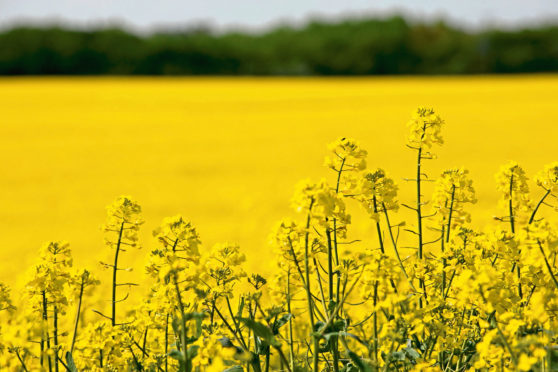Douglas Ross, the Scottish Tory leader, has come under fire, accused of duplicity in the debate over protection of the UK’s food standards following Brexit – a clear demonstration of the UK Government’s determination to not have their hands tied by food standards when future trade deals are negotiated.
As others have observed, our farm production may become an expendable bargaining chip to secure new trade agreements. It is a stark warning of the risks ahead for UK farmers reliant on primary agricultural production.
The food standards debate has focused on the prospect of chlorinated chicken and hormone beef on our supermarket shelves.
However, the current collapse of the UK’s oilseed rape production – a direct consequence of allowing lower-standard cheap imports to replace domestic production – provides a clear and present example of the consequences of not maintaining food quality standards.
Oilseed rape is a key ingredient for many food products, from cooking oils to mayonnaise. It is used in biodiesel and provides rape meal, which is a high-protein animal feed.
Due to an EU ban on the use of neonicotinoid insecticides, used to control flee beetle damage, growing oilseed rape in parts of the UK has become challenging. Since 2012 – the year before the ban was introduced – UK production has halved, and it is likely to fall further due to reduced plantings.
UK farmers cannot compete with those from countries where neonicotinoids are still used to keep production costs low. Our lost production has simply been substituted with imports from countries like Ukraine where continued neonicotinoid use allows a huge competitive advantage. The area of oilseed rape in Ukraine is increasing, and more than 90% of its oilseed rape exports are to countries where neonicotinoids are now banned.
It is not just the collapse in UK oilseed rape production we should be concerned about, but also our domestic oilseed processing capacity. Will investment be maintained in UK rapeseed crushing plants if our farm production does not recover?
Due to questions around the effect of neonicotinoids on beneficial insects the UK Government would be right following Brexit to maintain the neonicotinoid ban, at least until we have a better understanding of their effect on the environment – but that must go with a clear commitment to stop oilseed rape imports from countries where neonicotinoids are still in use.
Without such a government commitment to maintain imported food standards there is no level playing field for UK farmers, and our oilseed rape production will not recover.
The same reasoning applies to chlorinated chicken and hormone beef, or any other food where lower standards abroad afford a competitive advantage over UK farmers.
Tenant farmers will be at the sharp end of any failure of government to protect UK food standards following Brexit. With restrictions around agricultural leases tenants have less freedom to diversify, compared with owner-occupiers, and will be more reliant on the fortunes of primary agricultural production.
- Christopher Nicholson is chairman of the Scottish Tenant Farmers’ Association
